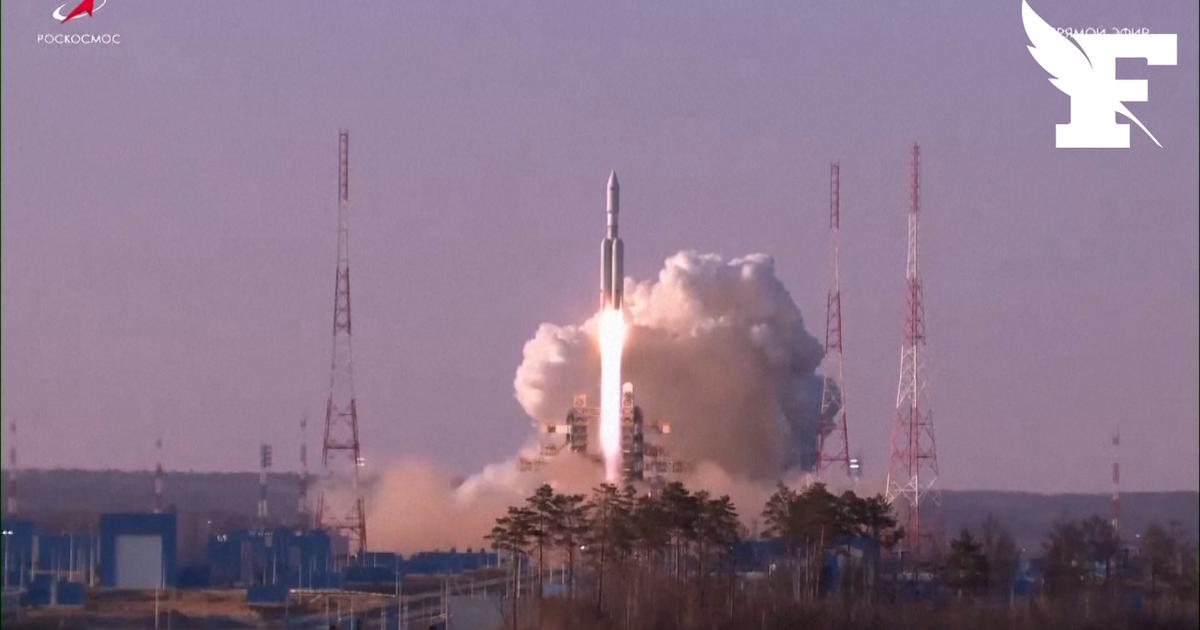After two postponements in two days, Russia finally succeeded this Thursday, April 11, at 11 a.m. French time, in the launch of its new generation Angara-A5 rocket from the Vostotchny cosmodrome, in the Russian Far East.
“
The rocket operated normally, the upper stage separated from the third stage of the rocket
,” the Roscosmos agency said in a press release a few minutes after takeoff. Tuesday and Wednesday, the launch of Angara-A5 was postponed for “technical” reasons.
The Angara-A5 rocket is a new generation machine intended to replace the aging Proton launchers, whose technology dates back to the 1960s.
This project, however, fell behind schedule and the timetable set by the Russian authorities at the time of the first test, in 2014, was not respected. The reasons: corruption scandals, budget cuts, serial delays and embarrassing setbacks, such as the loss of the Luna-25 lunar probe in August 2023.
Despite the success of April 11, the Russian space sector remains limited today by its lack of innovation. Most of its systems are based on Soviet technologies, which are generally reliable but aging.
Russia must also face increased competition from private companies, such as the American SpaceX owned by billionaire Elon Musk, and new space powers, such as India.

